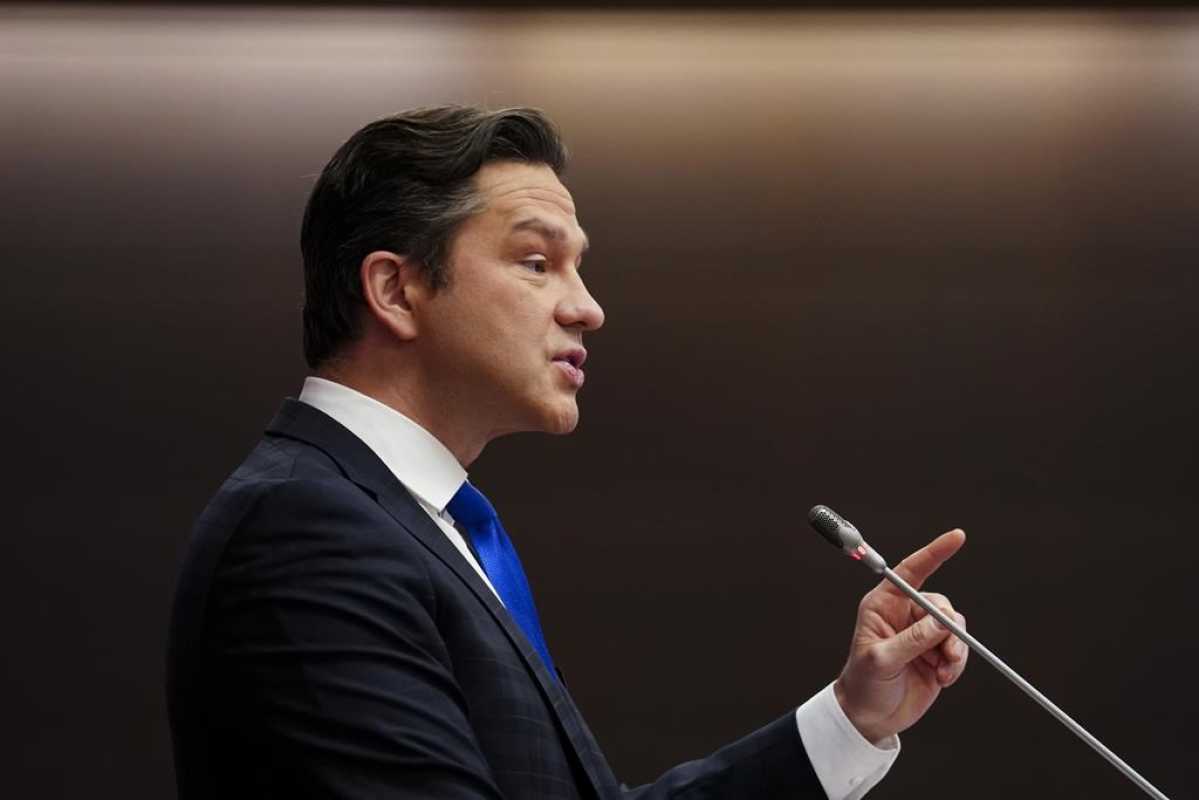Politics
Conservative Leader Poilievre Initiates Motion of Non-Confidence Over Carbon Tax, Pushes for Election

Conservative Leader Pierre Poilievre has put forth a motion of non-confidence aiming to overthrow the government and catalyze a federal election, centered around the impending increase in the federal carbon tax.
The motion, introduced on Wednesday, is part of a strategic effort by Poilievre and the Conservative Party to press the Liberal government to abandon the planned rise in the carbon tax set for April 1.
The proposed levy increase, which would amount to approximately 23%, is expected to raise costs for consumers, including a projected three-cent hike per liter of gas.
Poilievre emphasized at a Conservative caucus meeting on Parliament Hill that if Prime Minister Justin Trudeau does not desist from the scheduled tax escalations affecting essentials like food, gas, and heating, the Conservatives will proceed with a motion of non-confidence to prompt a federal election.
The NDP‘s support of the Liberal government through 2025 makes the success of the non-confidence motion unlikely, as outlined by the government’s current supply-and-confidence agreement with the fourth party.
During question period on Wednesday, Poilievre persistently criticized the carbon tax program, advocating for its repeal and urging Trudeau to engage in a "e;carbon tax election."e>
Trudeau and Poilievre cited differing Parliamentary Budget Officer (PBO) assessments on the financial impact of the carbon tax on Canadians, each emphasizing contrasting aspects of the taxation issue.
The government’s push to gradually reduce carbon emissions by 40% by 2030 is heavily reliant on the carbon tax, which is set to impose higher costs on fuel sources in an effort to promote cleaner energy alternatives.
Ottawa stands to accrue significant revenue through the HST levied on the carbon tax, funds that are not designated for climate initiatives directly, as per the PBO.
Several provinces, including B.C., and territorial regions with no existing carbon pricing mechanisms in place, are subjected to the federal backstop carbon tax.
Notably, seven provincial premiers have called for a halt to the impending carbon tax increase, citing ongoing concerns around the cost of living.












